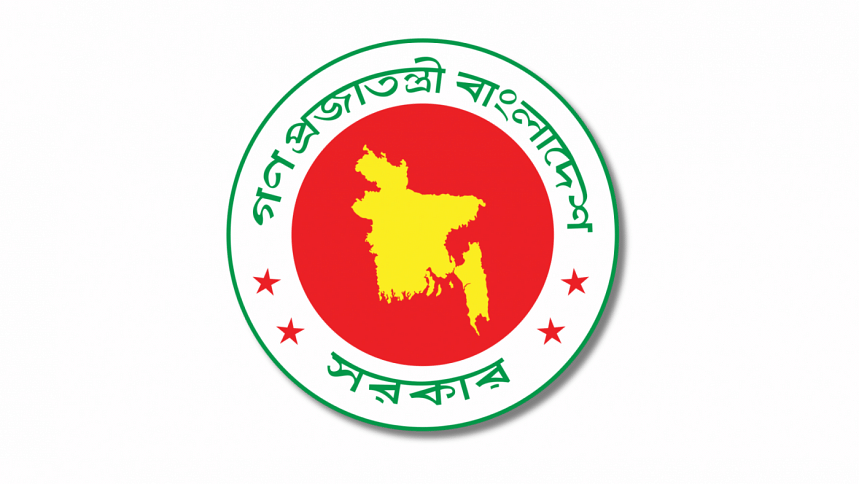Draft Govt Servant (Conduct) Rules: Govt employees won’t need to turn in wealth reports

The public administration ministry is pushing to relax a provision in the law that stipulates the submission of annual wealth statements every five years by public servants -- a move that can encourage corruption among the 14 lakh government employees.
The ministry now proposes that the government, if needed, collects the employees' wealth statements from their annual tax returns to the National Board of Revenue instead of getting it straight from the employees.
It also suggests that those who do not file their income tax return will have to submit their wealth statement in a prescribed form every December.
The ministry has proposed these in the draft amendment to the Government Servant (Conduct) Rules 1979.
Titled "Government Servant (Conduct) Rules-2022", the draft has been vetted by the law ministry. It will be placed to the secretary committee on administrative development affairs, The Daily Star has learnt from officials involved with the matter.
The draft rules define a public servant as anyone engaged in the service of the Republic as per the "Bangladesh Public Service Act-2018".
But those working in railway as well as the lower grade staff in police and a section of the Border Guard Bangladesh and Coast Guard will be outside the purview of the rules.
According to section 13 of the existing rules, the civil servants are bound to make a declaration of all movable and immovable property, shares, certificates, insurance policies and ornaments owned or held by them and their family members when joining service.
They are also required to file details of the increase and decrease in their wealth through their respective authorities every five years.
Although the public servants do make a declaration at the time of joining service, they do not submit details on any rise or drop in their wealth.
Experts fear the proposed changes will encourage corruption among government employees.
Previously, the public servants were required to submit wealth statements every year, said Mohammad Firoz Mia, a former additional secretary of the public administration ministry.
But as it was not followed, it was extended to five years, which too was not followed.
"Now, if the new proposals are taken into consideration, it will weaken the process of submitting wealth statements further and may help breed corruption. Accountability of civil servants will not be ensured if the proposals are approved," he added.
Meanwhile, the ministry kept unchanged the provision in which the government employees or their family members cannot acquire or transfer immovable property abroad without permission from the government.
This can turn out to be a very tricky way of legitimising money laundering, said Iftekharuzzaman, executive director of Transparency International Bangladesh.
"If the provisions imply that government officials may be permitted to acquire wealth and conduct business abroad, these may open floodgates of illicit transfers on the one hand and encourage corruption on the other. It goes without saying that legitimate income of government officials at any level can never be consistent with the capacity to acquire properties or run businesses abroad."
Even if in exceptional cases some government officials may have the opportunity to legitimately earn abroad, unless the process and legitimacy of such income are strictly specified, fungibility of money will be taken advantage of to acquire legality of illegal income and transfer thereof, he said.
"No less important is the fact that the proposed provision is discriminatory and hence unconstitutional because it grants a privilege to a particular category of individuals not afforded to other citizens," Iftekharuzzaman added.
Such a provision could pave the way for corrupt officials to launder wealth abroad, said Badiur Rahman, a former NBR chairman.
"Many may think that those who cannot keep amassed wealth in the country will have the opportunity to keep it abroad. If such a provision is kept, it may increase indiscipline in the administration," he added.
Asked about this matter, Public Administration Minister Farhad Hossain said: "I do not know whether this provision has been in the draft [of the rules]. I haven't got the rules yet, so I can't make any comment on this issue."
The draft rules said that government employees cannot enter into any business transaction with any foreigner, foreign government or foreign organisation.
In case of purchase, sale or transfer of property worth more than Tk 5 lakh in the area of his/her jurisdiction, except for the regular purchases required in the country, the employee will have to inform the head of the department or the secretary, it said.
The draft also prohibits government servants from constructing or purchasing a building, apartment or flat without the permission of the government.
It also proposed to include a social media policy for government employees.
Civil servants cannot post anything that can be considered as indiscipline, indecency immoral or contempt of court on social media.
The public servants cannot receive gifts worth more than Tk 50,000 or equivalent to their basic salary in any religious or social programmes without permission from the government.

 For all latest news, follow The Daily Star's Google News channel.
For all latest news, follow The Daily Star's Google News channel. 





Comments